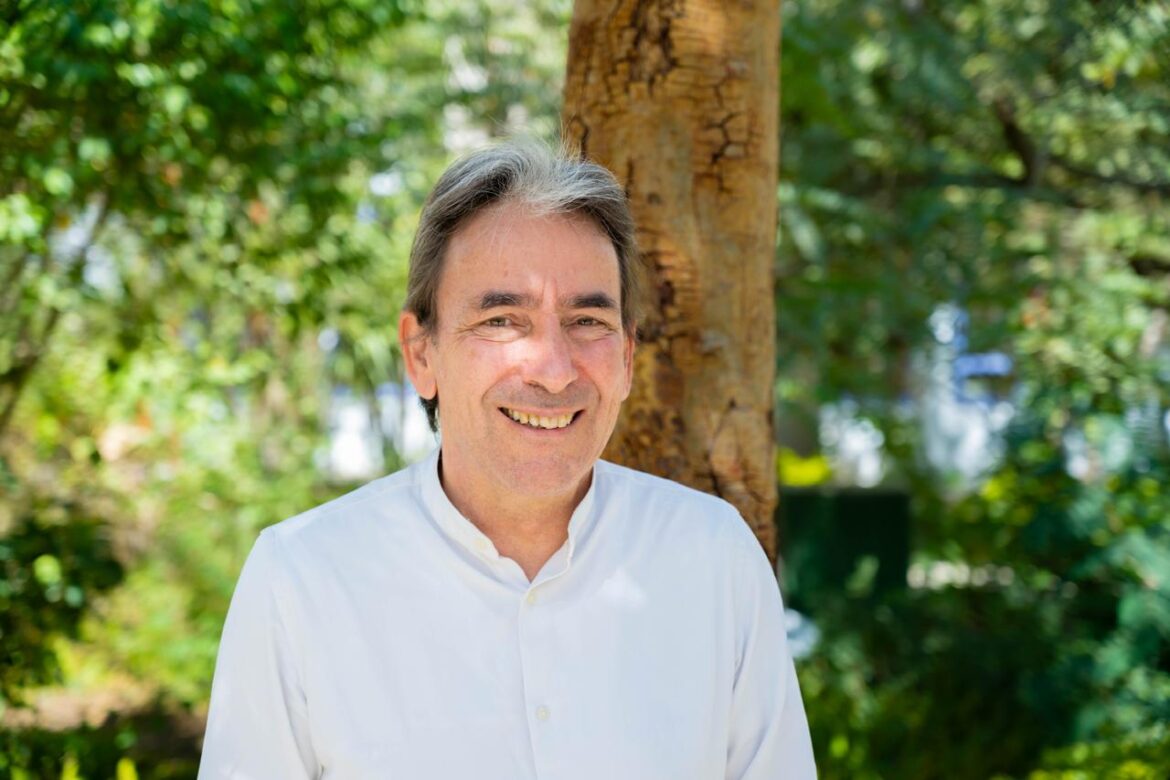In preparation for the new academic year, Heliopolis University for Sustainable Development, a pioneer in higher education, organized a media tour at its campus, to announce the launch of its new initiative aimed at enhancing employment opportunities and empowering the next generation of leaders to build a better and more sustainable future.
The initiative focuses on implementing a comprehensive program based on practical experience for students, with the aim of linking the educational process to the requirements of the market, and encouraging innovation among students. The program provides practical training opportunities for students in a variety of companies, factories, and institutions, starting from the internal business network of SEKEM Group and extending to building collaborative bridges with different companies and industrial institutions across the university’s partners.
In addition, the university aims to empower and develop its students’ skills by supporting graduation projects targeting the industrial sector. This includes providing practical training opportunities, opportunities for travel and international exchange for students, and hosting experts from various sectors to give lectures and share their expertise with students. This approach helps refine their practical skills needed for the job market, enhances their understanding of different industries, and transforms their ideas into tangible realities.
Mr. Helmy Abouleish , Chairman of the Board of Trustees of Heliopolis University for Sustainable Development and CEO of SEKEM Group, stated: “The concept of education for sustainable development is a major priority for us at the university. We are committed to instilling this concept in young people by introducing them to global challenges such as climate change and helping them unleash their potential to take on their community responsibilities.”
Mr. Helmy added that Heliopolis University for Sustainable Development has had specialized programs for over seven years, aimed primarily at enhancing and developing students’ abilities and skills to become graduates who can effectively contribute to the development of their communities. Today, we are launching a new initiative to enable graduates to qualify quickly and meet the demands of the labor market.
Within the same context, Dr. Gouda Hilal, President and Dean of Pharmacy at Heliopolis University, stated: “Since its establishment by Dr. Ibrahim Abouleish, the university has been dedicated to community development through building the skills of young people and graduates, making them more competitive in the market. As a university, we offer students a range of research centers that provide a practical environment to apply their academic skills. We also view our graduates as ambassadors for the university and have distinguished programs that create job opportunities for students through various departments. For example, in the Faculty of Engineering, there are specialized departments in water management, and we are currently seeking accreditation for an artificial intelligence program.”
Dr. Hilal added that other faculties at the university also have pioneering programs. For instance, the Faculty of Physical Therapy has a licensed physical therapy center. Heliopolis University for Sustainable Development is one of the few universities with this capability to allow students to engage in practical training, refine their skills, and provide healthcare to the surrounding community, which is one of the university’s goals.
This initiative continues the university’s restless efforts since its establishment through the “Community-Based Learning” program. This program requires students to venture into remote and underserved areas to understand community issues, apply their academic skills, and use their studies to assist these communities and seek solutions to various challenges.
Heliopolis University for Sustainable Development believes in the importance of supporting, empowering, and providing space for students to unleash and explore their potential. This is achieved through the university’s “Core Program,” which is a mandatory program running parallel to the various academic programs. The Core Program aims to develop students’ comprehensive skills and includes several sectors such as arts, languages, and humanities. It covers topics like sustainable development, entrepreneurship, Egyptology, and more.
In alignment with the Sustainable Development Goals, the vision of SEKEM, and Egypt’s Vision 2030, Heliopolis University for Sustainable Development’s centers are committed to delivering continuous outcomes that contribute to the sustainable development of communities, both nationally and globally. The university aims to provide high-quality education that prepares students for success in the professional life ahead of them.
It is worth noting that Heliopolis University for Sustainable Development was established in 2012 as part of SEKEM’s initiative to promote sustainable development toward a better future. The non-profit university includes faculties of Engineering, Pharmacy, Business and Economics, Physical Therapy, and Organic Agriculture. Heliopolis University actively participates in various research projects with prominent national and international universities and institutes in fields such as renewable energy, water, agriculture, mechatronics, biotechnology, and pharmacy. The university was invited to sign the Magna Charta Universitatum at the University of Bologna, joining over 800 prestigious international universities from 86 countries. Additionally, Heliopolis University is a partner of the Regional Centre of Expertise on Education for Sustainable Development in Cairo (RCE), recognized by the United Nations University in Tokyo.
Heliopolis University for Sustainable Development has also been included in the Times Higher Education Impact Rankings for the Sustainable Development Goals in its latest 2024 edition. Additionally, the university was ranked in the Webometrics Ranking of World Universities for citations in July 2024, among the 51 government, private, and non-profit research institutions in Egypt.


